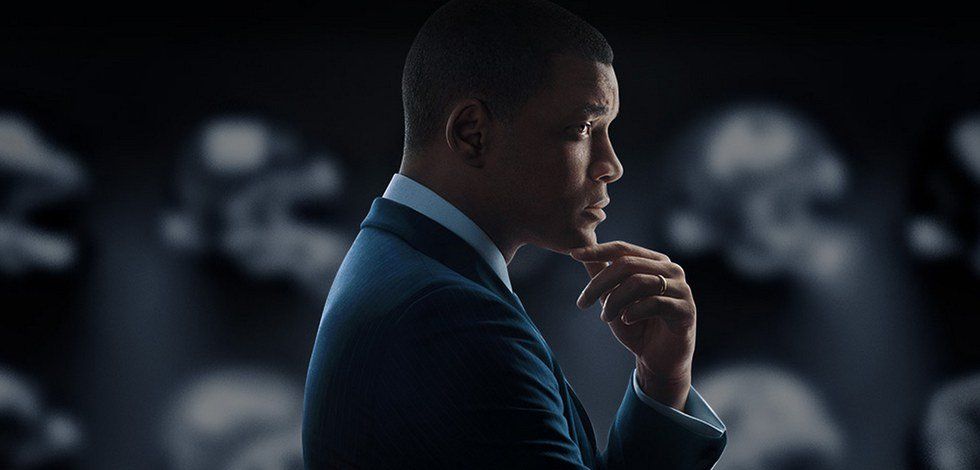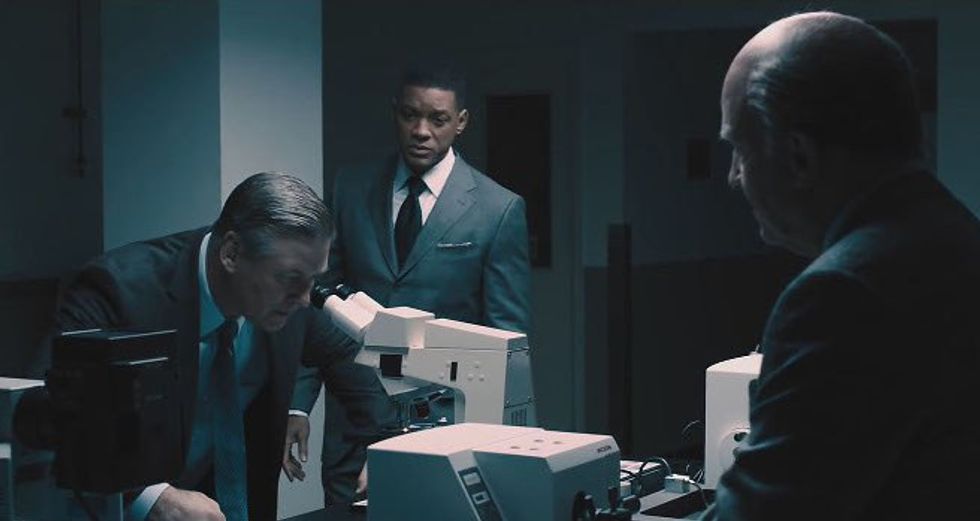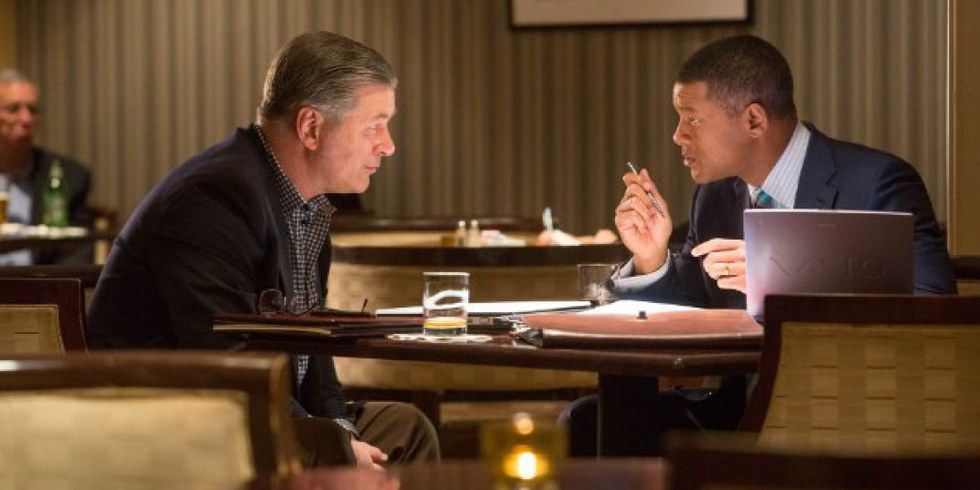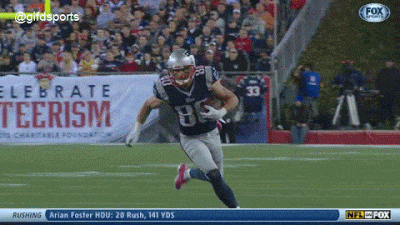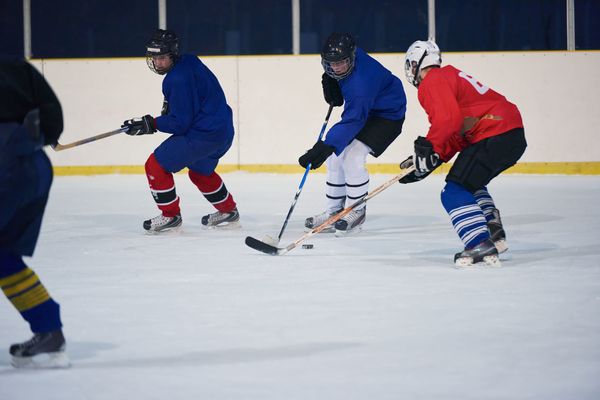I saw the new film "Concussion" starring Will Smith last week with two of my friends from high school, and I left the theater in awe and utterly mind-boggled. The film was intriguing and gave stellar performances by Will Smith and his colleagues Gugu Mbatha-Raw and Alec Baldwin. It gave a true glimpse into the ongoing fight for concussion protocol and prevention in not only the NFL, but at the college level and all the way down to peewee sports. The film had great backstories and very light, comical moments, but the majority of the storyline surrounds Will Smith’s character, a prominent physician in Philadelphia, researching head trauma in football players.
The film follows his first diagnosis of former Pittsburgh Steelers player Mike Webster, who died at the age of 50. Doctor Bennet Omalu, Smith’s character and real-life hero, went on a journey to understand why these young athletes were dying prematurely after so many years of sports. He came to the conclusion that this was a new disease and named it Chronic Traumatic Encephalopathy (CTE). CTE is different than Alzheimer’s and related dementias and is a “progressive degenerative disease of the brain found in athletes (and others) with a history of repetitive brain trauma, including symptomatic concussions as well as asymptomatic subconcussive hits to the head," according to the CTE center at Boston University.
The film examines how this finding was supported by scientific evidence, but the NFL chose to ignore it and cover up some of the dangers of head trauma. This was due to the overwhelming popularity of the sport and fear of lower ratings and regulations. In the end, some new protocols were put in place and there is a larger emphasis on head trauma today in the NFL, due very much to the hard work of Doctor Omalu.
One of the friends I saw the movie with goes to Boston University and has taken some classes touching upon CTE and other illnesses affecting the brain. She sent us some articles and further information about the CTE center at BU and one of the leading researchers, Dr. Ann McKee. She has worked on the same findings as Dr. Omalu, finding that a protein called tau builds up in the brain, which is an abnormality in a normal brain. The findings are incredible and show just how dangerous each hit to the head can be.
There are a million ways to discuss the film and its relation to the true science behind this disease and the NFL’s role in perpetuating injury for so long. The avenue I want to go down, however, is my personal struggle with approaching sports in relation to injury and the discussion we, as athletes, need to have.
At the end of the film, Alec Baldwin, playing an ex-NFL team doctor who now supports Omalu’s research, tries to explain to Will Smith why this research is so hard for him. He, like myself and millions of other Americans, absolutely loves football. Dr. Omalu, on the other hand, is originally from Nigeria and has never watched much football in his life. He thinks it is a barbaric sport, but Baldwin’s character tries to explain this fact to him. He says that he knows it can be dangerous and shocking, but there is also so much beauty to the game. I see it every Sunday when I sit in front of my TV and watch these insanely athletic people cut, dodge, reach up to catch an over-the-shoulder pass or throw a Hail Mary. It’s like watching the game in slow motion sometimes because some of these moves and formations are sincerely beautiful.
I love football so much and I wouldn’t want to see it banned or too tightly regulated at the expense of the beauty of the sport. As Baldwin’s character says in the movie, however, I cannot ignore scientific evidence. CTE is now a cemented illness in the medical world and the research and support for its causes and symptoms are fully real. As hard as it is for us to admit it, sports, specifically football, have been responsible for causing much of this brain damage. Athletes are committing suicide or falling ill to other diseases at shockingly young ages due to their struggles with CTE, an illness that can only be fully diagnosed and examined after death.
I have had three concussions, two from basketball in high school and one from collegiate rugby last spring. I was told they were somewhat mild concussions, and I returned to playing after a few weeks of some rest. I’m glad I took the time off, but I don’t know if I felt completely 100 percent myself when I returned to playing in games. Far too often, however, kids are not reporting concussions at all and continue to play without rest or caution. I’ve seen it in every sport that I’ve played, and it scares me to think that people are running around with possible brain damage at the expense of winning a game.
I will be the first to tell you, I want to win and give it everything I’ve got for my teammates because sports matter to me; but doesn’t your brain matter? As Will Smith’s character points out in the movie, many animals have specific protective mechanisms in their heads to prevent head trauma, such as rams or some birds. We humans, however, have no such mechanisms. In the film, Smith puts an onion in a jar of water and shakes it violently. He says this is akin to the brain, completely detached from the skull floating in fluid. We simply do not have the genetic makeup to protect us from such forceful blows to the head, and we continue to put ourselves in harm's way very often by the sports we play and the way in which we are taught to play them.
It’s time we as athletes take responsibility for our own health and pay more attention to our head injuries. It’s not as simple as “getting your bell rung” now. If you have any hit to the head whatsoever, then you need to at least get it checked out and then follow the safety procedures given by trainers or doctors. We need to stop letting head injuries slide and stop worrying more about if we look tough by riding out the pain than getting brain damage diagnosed. Who cares if people on your team think you’re being too cautious? I’d rather have good cognitive thinking when I’m an adult than stay on the field for a college game that doesn’t mean as much as my brain. It’s about time we start changing the landscape of sports so that we can protect each other and actually be able to play these games and enjoy our time as athletes.



